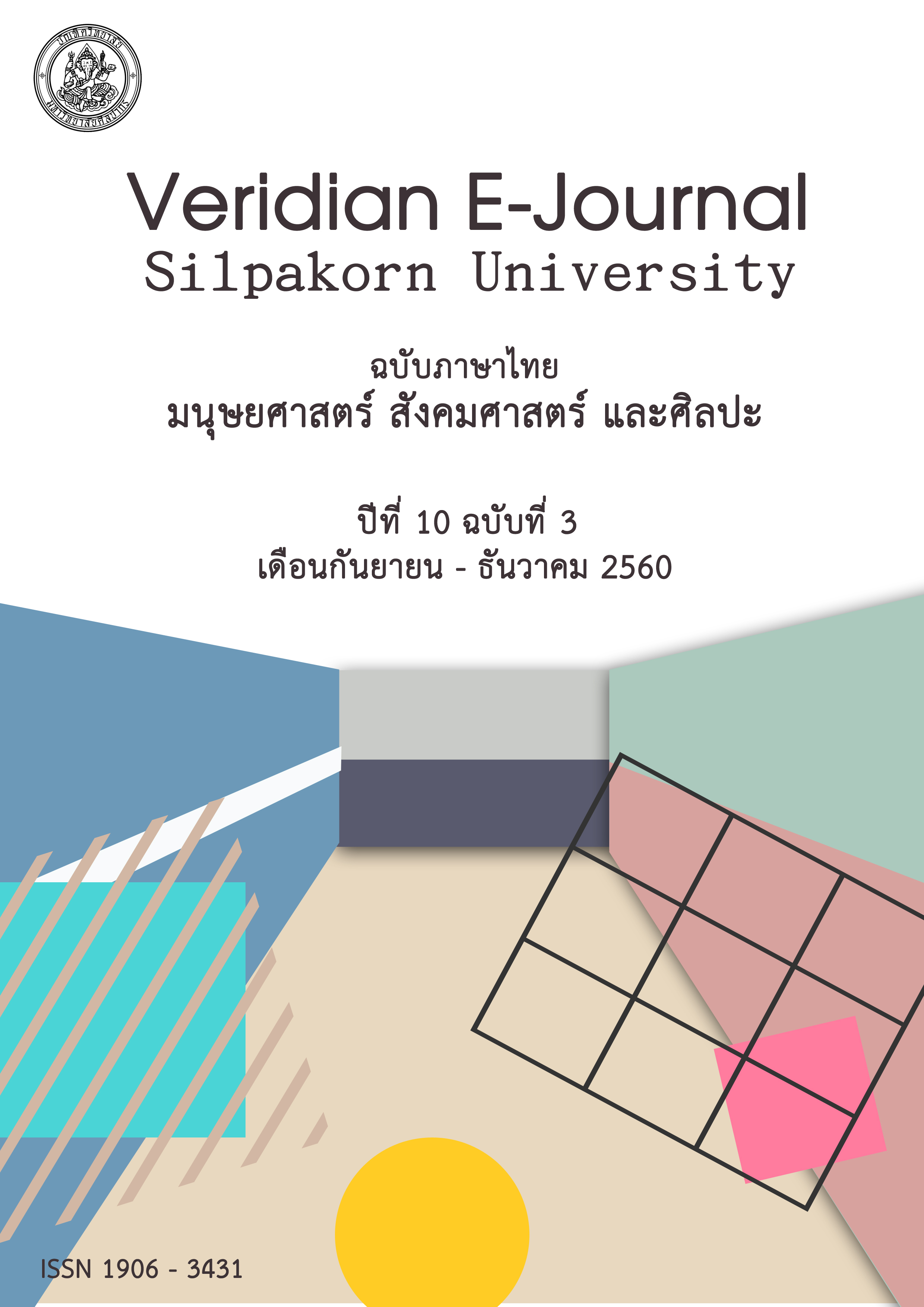ผู้สูงอายุกับการปฏิบัติตามหลักพุทธธรรม
Main Article Content
Abstract
ความสามารถในการปฏิบัติเพื่อให้เกิดความผาสุกทางจิตวิญญาณ คือความรู้สึกถึงความต่อเนื่องกลมกลืนระหว่างตนเองของผู้สูงอายุกับผู้อื่นตามธรรมชาติ และสิ่งนอกเหนือตนเอง บุคคลเหล่านี้มักเป็นผู้ที่มีใบหน้าสดชื่น ยิ้มหัวเราะ เป็นภาวะที่บุคคลรู้สึกว่าชีวิตของตนเองมีความผาสุก สงบ เยือกเย็น สมหวัง มีกำลังใจที่เข้มแข็ง มีความพร้อมที่จะเผชิญหรือดำเนินชีวิตไปข้างหน้าได้อย่างมั่นใจสามารถแสดงความพึงพอใจ หรือชื่นชมในประสบการณ์ของตนและสิ่งแวดล้อมโดยองค์ประกอบของความผาสุกทางจิตวิญญาณของผู้สูงอายุตามหลักพระพุทธศาสนาคือการฝึกพัฒนาจิตตามสมถะกัมมัฏฐานและวิปัสสนากัมมัฏฐานจะบังเกิดความสุขความสงบที่เกิดจากความดี ความไม่เห็นแก่ตัว และมีพรหมวิหาร 4 เป็นภาวะที่สิ้นไปของความทุกข์หรือการบีบคั้นทางกาย จิต สังคม และปัญญา เป็นความสุขที่ลึก และยิ่งกว่าสุขอื่นๆ ไม่มีความเห็นแก่ตัว ผ่อนคลายไม่เครียด มีความปีติ ความรู้สึกเบิกบานกับการทำหน้าที่และการใช้ชีวิต รู้ตื่นและเบิกบานในทุกย่างก้าวและทุกขณะที่ทำหน้าที่ รู้เท่าทัน ไม่ประมาทหรือขาดสติ มีสติปัญญาในการเสพ ทั้งทางหู ตา จมูก ลิ้น กาย และใจ อย่างมีสติ สมาธิ และปัญญา มีสติรู้จักฝึกฝนพัฒนาตนจนค้นพบศักดิ์ศรีและคุณค่าภายในตนเองเติบโตงอกงามขึ้นเป็นธรรมาธิปไตย บนพื้นฐานของคุณธรรม จริยธรรม มีเหตุผล เคารพซึ่งกันและกันมากขึ้น ซึ่งเกิดขึ้นจากการปฏิบัติตามหลักพุทธธรรม คือสมถะกัมมัฏฐานและวิปัสสนากัมมัฏฐาน
Ability to practice for spiritual well-being is the sense of self-harmony between the elderly and others naturally. And anything else these people are often cheerful faces, smiling, laughing is a condition where people feel their own lives are peaceful, calm, cheerful. Be ready to face or live forward confidently, able to show satisfaction. The composition of the spiritual well-being of the elderly according to Buddhism is the practice of Samatha-kammatthan and Vipassana-kammatthan for the arising of happiness and peace. Unselfishness and blessed 4 is the end of suffering or physical oppression, social and intellectual is a deep joy. And more than any other pleasure. No selfishness relax, do not stress, have rapture, enjoy the fun and the life. Knowing, waking and rejoicing at every step and every moment, acting as knowingly, without recklessness or unconsciousness. There is wisdom in taking both ear, nose, tongue, body and mind, mindfulness, concentration and wisdom, consciousness, self-development, self-discovery, dignity and self-worth, flourishing as dharma. On the basis of morality, ethics, mutual respect, more mutual. This is due to the practice of Buddhist principles. Is the form of Samatha-kammatthan and Vipassana-kammatthan.

